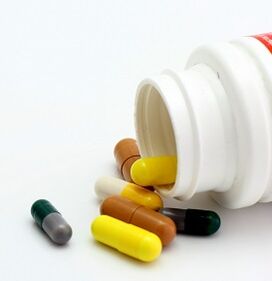
The urine system is often exposed to infections.One of the common infectious diseases of the urinary tract is cystitis.What to do with cyst in women?Treatment of pathology should be started at the first symptoms.In the absence of therapy, the disease takes on a chronic form that will be much more difficult to cope.
Provocative factors and symptoms of the disease
Cystitis is a disease with an inflammatory-infectious nature that develops in the area of the bladder.The disease is most often diagnosed in women, but cystitis cases in men are not excluded.
The reason for the development of cystica is becoming a conventional pathogenic flora in the urinary tract of the infection:
- streptococci;
- Escherichia sticks;
- Staphylococci;
- and others.
The infection may be a consequence of a mismatch of the rules of hygiene norms for the care of the genitals or as a result of the inflammatory process.The pathology is also transmitted sexually (ureaplasma or mycoplasma).
In cystic, the patient has symptoms:
- pain in the urination process;
- sudden attacks of pain in the lower abdomen;
- Feeling of incomplete urinary devastation;
- Incontinence of urine fluid;
- The color of the urine is muddy;
- release of urine with blood;
- Temporary fever up to 38 degrees.
In women, cystitis treatment is performed on an outpatient basis by taking medication.When conducting therapy at the initial stage, the disease can be eliminated without any complications.
The choice of treatment tactics

The effectiveness of therapeutic measures depends on how early the diagnosis is performed.Determining the cause of pathology (identifying the type of infection) also plays a significant role.With the development of chronic or acute form of cystitis, medicines may not have the effect and the infection will progress further, provoking diseases of the kidneys and genital organs.
The main task of specialists involved in the patient's therapy is to prevent the inflammatory process by destroying pathological microorganisms in the area of damage to the urine mucosa.
The choice of a cure for cystitis is extremely committed to a doctor, taking into account the characteristics of the disease in women:
- type of infection;
- The degree of development of the disease;
- individual body characteristics (age, gender, weight);
- the presence of contraindications;
- The tendency to show a side effect.
An important point is to determine the reaction of pathological microorganisms to the composition of the drug.A special study is being conducted to help determine the most appropriate medicines.
Competent approach to the treatment of cystica
Drug therapy includes a complex of medicines in different groups.A woman is prescribed cystitis tablets not only to destroy the infection, but also to prevent inflammation, as well as to reduce the intensity of symptoms.
With complex therapy, medication is recommended for groups:
- antibiotics;
- herbal preparations;
- antispasmodics;
- anti -inflammatory;
- Probiotics.
For more effective treatment of cystitis in women, it is necessary, in addition to taking medicines, adhere to a special diet and observing hygiene measures.
Antibiotics
The main group of medicines that help prevent the progression of cystitis infection in women are antibacterial drugs.
Antibiotics have a strong effect on body weight, so it is desirable to take them only as prescribed by a doctor.
Plant medicines
Phytopreparations have a lower effect than antibiotics, but their toxic effects are less, so their use is permissible during pregnancy (with a specialist resolution).
In women, natural composition cystitis is used in combination with antibiotics.In this way, treatment and recovery are faster.
Antispasmodics
In cystitis, the patient is often concerned about urinary spasms, especially during urination.To eliminate pain and cramps, a woman is recommended for cystitis drugs containing drotaverin.
Taking drugs containing drotaverin is recommended for symptomatic therapy.Short -term intake (2 - 3 days) is possible.
Anti -inflammatory drugs
In addition to antibiotics, anti -inflammatory drugs that prevent the development of complications, especially with an increased risk of kidney inflammation, may be prescribed to a patient with cystitis.
The drugs of the anti -inflammatory group are often prescribed for single use with increased intensity of symptoms (pain or fever).
Probiotics
The use of antibiotics in most cases leads to impaired stomach functionality due to the effects of drugs on the walls of the gastrointestinal tract.In order to facilitate the work of the digestive tract for the period of treatment, a joint intake of probiotics is prescribed.
Taking probiotics reduces the risk of an adverse reaction of gastrointestinal drugs.
Contraindications and side effects
All medicines for the treatment of cystitis in women should be selected, taking into account possible contraindications.In the process of therapy, the patient may also show symptoms of an adverse reaction, the cause of which are contraindications, exceeding the recommended dose or a possible individual reaction of the body to medicines.
Contraindications:
- individual sensitivity to component components;
- a number of chronic diseases;
- impaired renal or hepatic functions;
- Central nervous system problems.
Most medicines are not recommended for taking during pregnancy or lactation, as well as at the age of 18 or after 60 years.
Side reaction:
- Disorder of the gastrointestinal tract (diarrhea/constipation, nausea, abdominal pain);
- jumps in blood pressure, tachycardia and other disorders of the cardiovascular system;
- headache or attacks of dizziness;
- depressive states or changes in mood;
- allergic reaction to the skin;
- Changing the color of the urine (bright yellow).
Taking drugs in the presence of contraindications can cause the development or exacerbation of comorbidities.Symptomatic therapy may be prescribed to the patient.
Proper nutrition during treatment

In order to accelerate the treatment of cystitis and to prevent complications in connection with the use of drugs, it is necessary to monitor a diet that restores the mucosal microflora and the functionality of the urine.
It is recommended for use:
- a large number of fruits as well as vegetables;
- fruit drinks, green tea or free (without sugar);
- Close -grained crops.
Carrots, cabbage, pumpkin, asparagus, bran and cedar should be included in the diet.
In cystitis, consumption of any salt, which has an irritating effect on the walls of the bladder, should be excluded.
It is also undesirable to use:
- spices;
- canned food;
- smoked meats;
- sour;
- Sharp dishes.
The doctor recommends the proper diet or may be addressed to a nutritionist.
Treatment with cystitis drugs should not be started without prior consultation of a doctor who establishes an individual regimen for the treatment of each woman.
























